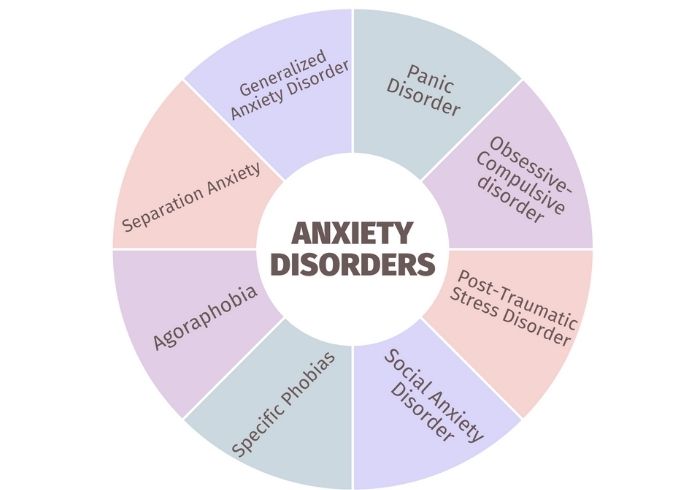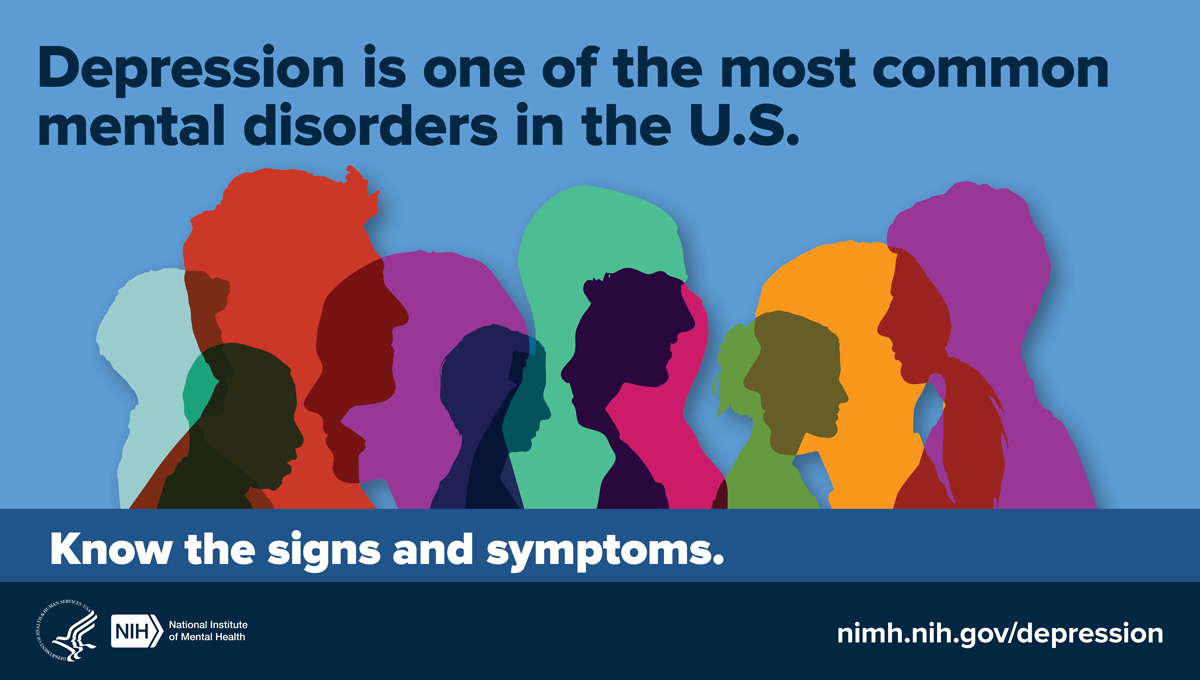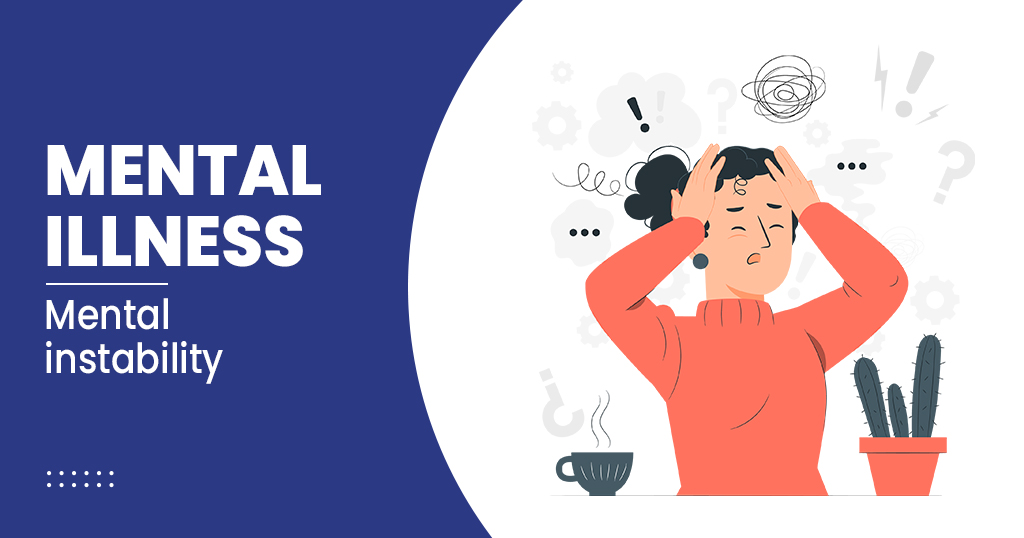Introduction to Psychological Disorders
Psychological disorders are conditions that affect a person’s thoughts, emotions, and behavior, resulting in significant distress or impairment in functioning. Understanding psychological disorders is crucial as they impact the lives of millions of individuals worldwide.
By gaining knowledge and awareness of these disorders, we can better support those who are affected and promote mental health and well-being.
Definition and Importance of Understanding Psychological Disorders
Psychological disorders encompass a wide range of conditions, including anxiety disorders, mood disorders, personality disorders, and psychotic disorders, among others. Understanding these disorders is essential for several reasons:
- Recognition and Diagnosis: Understanding the symptoms and diagnostic criteria of psychological disorders can help identify and diagnose individuals who may be experiencing mental health issues.
- Treatment and Support: Having knowledge about psychological disorders enables healthcare professionals and support networks to provide appropriate treatment and support to individuals who are affected.
- Reducing Stigma: Understanding psychological disorders helps dispel myths and misconceptions surrounding mental health, reducing stigma and promoting acceptance and empathy towards those who are affected.
Common Myths and Misconceptions
Despite increased awareness and education about mental health, several myths and misconceptions still persist. It is important to address these misconceptions to foster a more inclusive and understanding society. Some common myths include:
- Myth: People with mental disorders are “crazy” or dangerous.
- Fact: Individuals with mental disorders are not inherently violent or dangerous. In fact, they are more likely to be victims of violence than perpetrators.
- Myth: Mental disorders are a sign of weakness or personal failure.
- Fact: Mental disorders are medical conditions influenced by a combination of biological, psychological, and environmental factors. They are not a reflection of personal weakness or failure.
- Myth: Mental disorders cannot be treated.
- Fact: Many mental disorders can be effectively treated and managed with a combination of therapies, medications, and support systems.
- Myth: People with mental disorders can “snap out of it” if they try hard enough.
- Fact: Mental disorders are not a matter of willpower or choice. They require professional intervention and support for recovery.
By challenging and dispelling these myths, we can create a more supportive and understanding environment for individuals living with psychological disorders.

Anxiety Disorders
Anxiety disorders are a group of mental health conditions characterized by excessive and persistent feelings of fear, worry, and unease. They can significantly impact a person’s daily life and overall well-being. Here are some common types of anxiety disorders:
- Generalized Anxiety Disorder (GAD): Individuals with GAD experience excessive worry and fear about various aspects of their life, such as work, relationships, and health.
- Panic Disorder: Panic disorder is characterized by recurrent panic attacks, which are sudden episodes of intense fear accompanied by physical symptoms like a rapid heart rate, shortness of breath, and chest pain.
- Phobias: Phobias involve an intense and irrational fear of specific objects or situations.
The causes of anxiety disorders can be complex and multifaceted, including both genetic and environmental factors. Common symptoms include excessive worry, restlessness, irritability, difficulty concentrating, and sleep disturbances.
Treatment options for anxiety disorders can include therapy, medication, and self-help strategies. Cognitive-behavioral therapy (CBT) is often effective in helping individuals manage their anxiety and develop coping mechanisms.
Medications such as selective serotonin reuptake inhibitors (SSRIs) or benzodiazepines may be prescribed in some cases.
For more information on anxiety disorders, you can visit the Wikipedia page on the subject.

Mood Disorders
Major Depressive Disorder
Major Depressive Disorder is a common and severe form of depression characterized by persistent feelings of sadness, hopelessness, and a loss of interest in activities. It can affect a person’s ability to function in their daily life. Some common symptoms of major depressive disorder include:
- Persistent feelings of sadness or emptiness
- Loss of interest or pleasure in activities
- Changes in appetite or weight
- Sleep disturbances
- Fatigue or loss of energy
Treatment options for major depressive disorder may include therapy, medication, or a combination of both. It’s essential to seek help from a healthcare professional if you experience symptoms of major depressive disorder.
Bipolar Disorder
Bipolar Disorder is a mood disorder characterized by episodes of manic and depressive symptoms. Individuals with bipolar disorder may experience periods of elevated mood, known as mania, as well as periods of depression. Some common symptoms of bipolar disorder include:
- Manic symptoms: increased energy, decreased need for sleep, racing thoughts, impulsive behavior
- Depressive symptoms: feelings of sadness, loss of interest, changes in appetite or sleep patterns, low energy
Treatment for bipolar disorder typically involves a combination of medication and therapy to manage mood episodes and promote stability.
To learn more about mood disorders such as major depressive disorder and bipolar disorder, you can visit here.
:max_bytes(150000):strip_icc()/bpd-vs-bipolar-5096132_FinaL-e946be6d6df04527a2a043e6e974abd0.jpg)
Personality Disorders
Borderline Personality Disorder
- Borderline Personality Disorder (BPD) is a psychological disorder characterized by intense emotions, unstable relationships, and self-image.
- People with BPD often experience chronic feelings of emptiness and have difficulty regulating their emotions.
- They may engage in impulsive behaviors such as self-harm or substance abuse. Therapy, medication, and support systems can help individuals manage their symptoms and improve their quality of life.
- BPD is a complex disorder, and it is essential to seek professional help for diagnosis and treatment.
Narcissistic Personality Disorder
Narcissistic Personality Disorder (NPD) is a mental health condition characterized by an inflated sense of self-importance, a constant need for admiration, and a lack of empathy for others. People with NPD often have a sense of entitlement and believe they are superior to others.
They may engage in arrogant behaviors and have difficulty maintaining healthy relationships. Treatment for NPD typically involves therapy, helping individuals develop healthier coping mechanisms and improve their ability to empathize with others. To learn more about Narcissistic Personality Disorder, visit here.
Causes, Symptoms, and Treatment Options
The causes of personality disorders are complex and can be influenced by a combination of genetic, environmental, and social factors. Some common symptoms of personality disorders include:
- Difficulty forming and maintaining relationships
- Impulsivity
- Emotional instability
- High levels of anxiety or distress
- Patterns of self-destructive behavior
Treatment options for personality disorders vary depending on the specific disorder and the individual’s needs. Psychotherapy, including dialectical behavior therapy (DBT) and cognitive-behavioral therapy (CBT), can help individuals develop new coping strategies and improve their overall functioning.
Medication may also be prescribed to manage specific symptoms, such as depression or anxiety. It is essential to work with a mental health professional to determine the best course of treatment for an individual’s specific needs and circumstances.

Schizophrenia
Schizophrenia is a complex and chronic mental disorder that affects how a person thinks, feels, and behaves. It is characterized by a range of symptoms that can include hallucinations, delusions, disorganized thinking, and a lack of motivation.
Causes and Risk Factors
The exact cause of schizophrenia is still unknown, but research suggests that a combination of genetic, environmental, and neurochemical factors may contribute to its development. Some of the known risk factors for schizophrenia include:
- Genetic predisposition: Having a family history of schizophrenia increases the risk of developing the disorder.
- Environmental factors: Exposure to certain viruses, malnutrition during pregnancy, and early life stress have been associated with an increased risk of schizophrenia.
- Neurochemical imbalances: Abnormalities in the brain’s neurotransmitters, such as dopamine and glutamate, have been implicated in the development of schizophrenia.
Symptoms and Diagnosis
The symptoms of schizophrenia can vary from person to person, but they are generally categorized into three main groups:
- Positive symptoms: These symptoms involve the presence of abnormal thoughts and behaviors, such as hallucinations, delusions, and disorganized speech.
- Negative symptoms: These symptoms involve a lack of normal emotions and behaviors, such as reduced emotional expression, social withdrawal, and a lack of motivation.
- Cognitive symptoms: These symptoms affect a person’s ability to think clearly and make decisions, leading to difficulties with memory, attention, and problem-solving.
Diagnosing schizophrenia involves a comprehensive evaluation by a mental health professional, who will assess the person’s symptoms, medical history, and family history. Other medical tests may also be conducted to rule out any underlying medical conditions that could be causing the symptoms.
It is important to note that schizophrenia is a lifelong condition, but with proper treatment and support, individuals with schizophrenia can lead fulfilling lives and manage their symptoms effectively.
If you or someone you know is experiencing symptoms of schizophrenia, it is crucial to seek help from a qualified mental health professional for an accurate diagnosis and appropriate treatment plan.
For more information on schizophrenia, you can visit Wikipedia.

Eating Disorders
Anorexia Nervosa
- Anorexia nervosa is a serious psychological and potentially life-threatening eating disorder characterized by an intense fear of gaining weight and a distorted body image.
- Individuals with anorexia nervosa will often severely restrict their food intake, leading to extreme weight loss and malnutrition.
- Anorexia can have devastating physical and psychological consequences if left untreated.
Bulimia Nervosa
- Bulimia nervosa is another common eating disorder characterized by recurrent episodes of binge eating, followed by behaviors such as self-induced vomiting or excessive exercise to compensate for the binge.
- Individuals with bulimia nervosa often experience a sense of loss of control during binge episodes and have intense feelings of guilt and shame afterward.
Causes, Symptoms, and Treatment Options
The causes of eating disorders are complex and can involve a combination of genetic, environmental, and psychological factors. Common symptoms of eating disorders include:
- Preoccupation with body weight and appearance
- Restrictive eating patterns or excessive consumption of food followed by compensatory behaviors
- Intense fear of gaining weight
- Distorted body image
- Depression, anxiety, or other mental health issues
Treatment for eating disorders usually involves a multidisciplinary approach, including therapy, nutritional counseling, and medical interventions. Cognitive-behavioral therapy (CBT) is often used to help individuals challenge and change negative thoughts and behaviors surrounding food and body image.
In more severe cases, hospitalization may be necessary to stabilize physical health and provide round-the-clock care.
It’s important to seek help if you or someone you know is struggling with an eating disorder. Early intervention and treatment can lead to improved outcomes and a return to a healthier relationship with food and body image.

Obsessive-Compulsive Disorder (OCD)
Obsessive-Compulsive Disorder (OCD) is a psychological disorder characterized by recurring intrusive thoughts (obsessions) that create anxiety and repetitive behaviors (compulsions) aimed at reducing that anxiety.
Moreover, it affects people of all ages and can have a significant impact on daily functioning and quality of life.
Causes and Risk Factors
The exact cause of OCD is unknown, but it is believed to involve a combination of genetic, environmental, and neurological factors. Some risk factors that may contribute to the development of OCD include:
- Family history of OCD or other anxiety disorders
- Brain abnormalities or chemical imbalances
- Traumatic life events or significant stress
Symptoms and Diagnosis
The symptoms of OCD can vary from person to person but generally involve:
- Obsessions: Intrusive and unwanted thoughts, urges, or images
- Compulsions: Repetitive behaviors or mental acts performed to alleviate anxiety
- Fear of contamination, excessive cleanliness, and handwashing
- In addition to symmetry and orderliness obsessions
- Hoarding or difficulty discarding possessions
To be diagnosed with OCD, symptoms must be time-consuming, cause distress, and significantly interfere with daily functioning.
Moreover, a mental health professional, such as a psychiatrist or psychologist, can conduct a clinical assessment and use standardized criteria outlined in the Diagnostic and Statistical Manual of Mental Disorders (DSM-5) to make an accurate diagnosis.
To learn more about Obsessive-Compulsive Disorder (OCD) and its treatment options, consult with a healthcare professional or mental health specialist.

Post-Traumatic Stress Disorder (PTSD)
Post-Traumatic Stress Disorder (PTSD) is a psychological disorder that can develop after an individual has experienced or witnessed a traumatic event. It is a serious condition that can significantly impact a person’s daily life and well-being. Moreover, here are some key points about PTSD:
Causes and Risk Factors
1. Traumatic Events: PTSD is often associated with experiences such as war or combat, natural disasters, accidents, physical or sexual assault, or witnessing a traumatic event.
2. Risk Factors: Certain factors may increase a person’s vulnerability to developing PTSD, such as a history of trauma, previous mental health conditions, a lack of social support, or experiencing more severe or prolonged trauma.
Symptoms and Diagnosis
1. Re-experiencing Symptoms: This includes flashbacks, nightmares, or intense distress when exposed to reminders of the traumatic event.
2. Avoidance Symptoms: Individuals with PTSD may avoid certain people, places, or activities that remind them of the trauma.
3. Hyperarousal Symptoms: This includes feelings of irritability, hypervigilance, difficulty sleeping, and being easily startled.
To receive a formal diagnosis of PTSD, a person must experience these symptoms for at least one month and have significant distress or impairment in their daily functioning. It is essential to seek professional help for proper assessment and treatment. For more information on PTSD, you can refer to this link.
Understanding the Complexity of Psychological Disorders
In conclusion, psychological disorders are complex conditions that can significantly impact an individual’s mental health and well-being.
It is essential to approach these disorders with empathy, understanding, and support. By recognizing the signs and symptoms of various psychological disorders, individuals can seek appropriate help and treatment to improve their quality of life.
Additionally, it is crucial to raise awareness about mental health and reduce the stigma surrounding psychological disorders.
As research and understanding of psychological disorders continue to evolve, it is hoped that more effective treatments and interventions will be developed to support those who are affected.
Moreover, by fostering a compassionate and inclusive society, we can create a positive environment for individuals battling psychological disorders and promote mental well-being for all.
Resources and references: VeryWell Mind, Healthline, Mind, Cleveland Clinic.


Leave a Reply